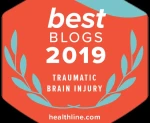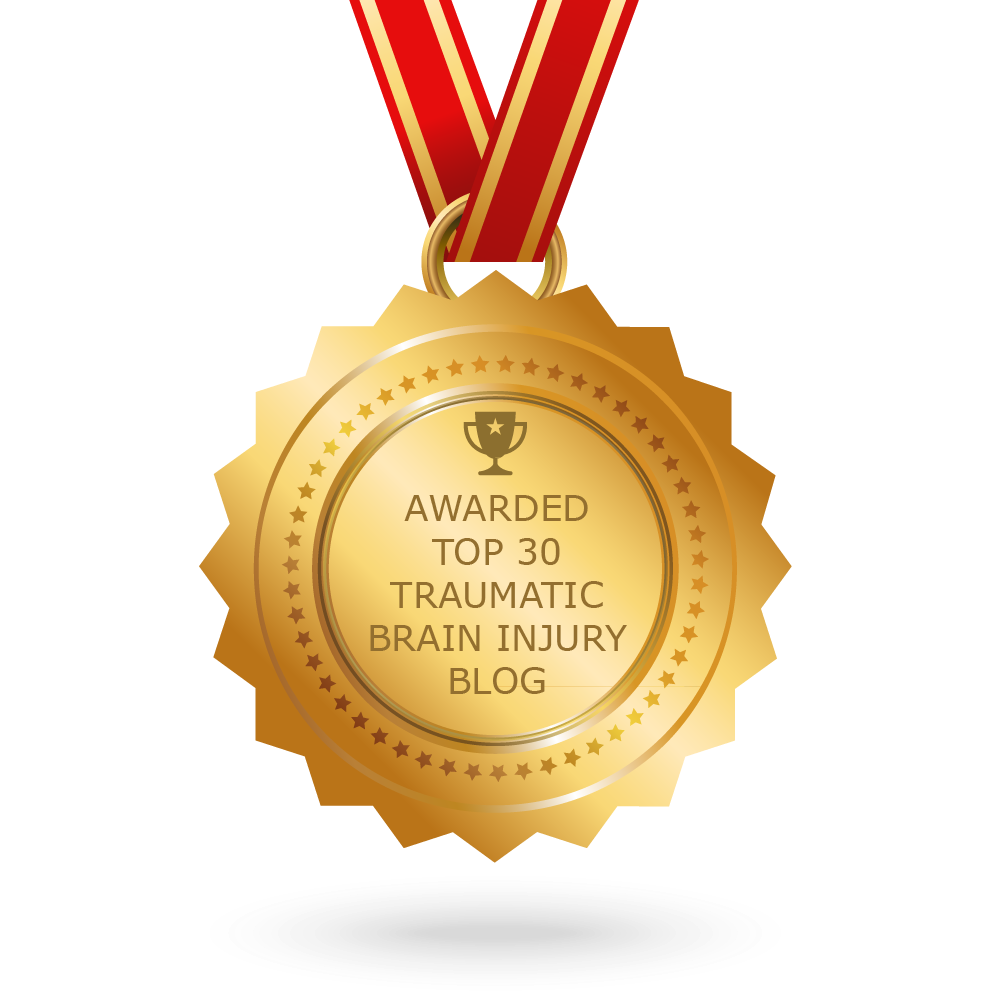For many of the thirteen years since I was injured, I have slept in 3 and 4 hour shifts, often 7 pm to 10pm and 6am to 9am. I can’t tell you how many times people have suggested to me, exasperated, “Just don’t take that nap!”
I wish it were that simple.
When I worked in catering, there was one stretch of just shy of 8 months when I had one day off and averaged more than 90 hours a week. Not one day off a week. One day off in almost nine months.
Now I get to four o’clock in the afternoon and I’m talking nonsense.
Ten toes up.
It’s hard for people who are not brain injured to understand how we can possibly be so tired when, for many of us, we don’t keep up nearly the pace we did before our injuries. Late day cogntive fatigue is so commonplace for so many of us. “Normal” people are working two jobs and raising kids and running here and racing there. They look at us about dumbfounded.
I think I’m typical as a brain injury survivor in that I have a hard time now processing multiple “chunks” of information. Think of your computer and how bogged down and slow it gets when you’re running too many applications and trying to open too many windows at one time. It grinds down. It gets stuck. It stops “thinking.”
So do we.
Because of our unique challenges, most of us are juggling cognitive processes that, for the well, are executed without a conscious thought. At the same time, our ability to accomplish just that has been diminished, making our “candles burn at both ends.” The light goes out too soon most days.
In my case, because of my balance problems, I’m constantly measuring and judging the landscape. I’m calculating how to balance myself and how to move and how to react in order to keep myself safe and upright. “Normal” people aren’t even thinking about how they’re walking or if they’re walking from carpet to tile or on the edge of grass or up a stair or down a hill. They just do it.
At the same time, maybe I’m having a conversation. Because I don’t process information as quickly, I’m focusing harder. I’m repeating information in my head as it’s received in order to recall it later. I’m trying to remember what the heck the first part of the conversation was about because, often by the end of it, I’ve lost the beginning of it.
Additionally, one of my problems is that I have a tendency to interrupt and change the subject. So I’m also focusing on the conversation and reminding myself to stay in the moment and don’t interrupt and to wait my turn to insert a thought that is screaming to be shared.
It doesn’t take long before I, we, use up our quota of cogntive reserve and soon we have no choice. Ten toes up.
Our afternoon naps are not so much a failure to structure our days more beneficially. But rather, they become strategic compensatory techniques for us to utilize in order to make better use of the time we’re awake. We’re simply recharging our batteries.
My friends and family know, by now, the symptoms I display when I am running low on cognitive fuel. They know, too, that if I am engaged in activities which drain my stores more quickly, it’s not going to be long before I’m going to need them to take over the decision making and keep me safe.
A concert, a ball game, a party, a crowded dancefloor with strobe lights…all these and more cram chunks of information into a processor that, by the end of the day, is working more like a pocket calculator than a streamlined computer. If there’s too much stimuli, too much noise, too many conversations, too many choices, too many steps I have to calculate, there simply isn’t much left. I won’t have the ability to execute functions as simple as trying to calculate a tip at the end of a meal or as serious as being able to operate a vehicle safely.
Ten toes up.
TBI survivors have, over the years, lamented how embarrassed they are at having to take naps. They have been admonished and ridiculed for this, like it’s some kind of character flaw.
I look at sleep differently. I consider it medicine. A cane. A wheelchair. A dayplanner. A post it note. A whiteboard.
Taking a nap in order to recharge cogntive batteries is a necessary tool. A compensatory technique that enables us to be the efficient, successful people we can be when we’re firing on all cylinders. Implementing these strategic rest periods is a huge part of successful recovery and part of redesigning new lives that fit the unique features of our injuries. Naps aren’t something to be cured. They are something to be cheered. They are a smart, safe, inexpensive remedy to a common problem. And there are few side effects besides missing some favorite TV shows.
We don’t chastise babies or the elderly for having to take naps. But, for some strange reason, we, as a society, have come to equate the need for more sleep with laziness or weakness.
How many times have you heard people proudly boast, “I only need four hours of sleep each night?” We look at these people like they are stronger or more determined than those other lazy sots sleeping six hours a night.
My sleep patterns were damaged in my injury. Not only do I often sleep in two sets of naps, my brain kicks me out whenever I reach a level of deep sleep. This means that I do not benefit like most from the kind of essential sleep which restores, heals and revives.
I’ve been advised that my body is aging more quickly and fixes itself more slowly. I am not able to lose weight as easily (even if I wasn’t addicted to chocolate). It’s like never shutting your computer down. Eventually it simply doesn’t work as well.
We need to promote sleep. Cheer it. Value it. In a society where we are struggling to make ends meet and working two jobs or staying up stressing because we’ve lost them, we need to change our thinking about what sleep means. It no longer means that, to deprive ourselves of sleep means we are smarter, more driven and more accomplished. It’s time we learn that, it’s only IF we sleep that we can continue to be smart, to keep driving and to remain accomplished.
Ten toes up. Sweet dreams.



Thanks, I needed that.
Comment by Kaz — April 24, 2009 @ 1:28 pm |
🙂
Comment by karaswanson — April 24, 2009 @ 1:49 pm |
[…] This chap created an interesting post today on Ten Toes Up Kara Swanson's Brain Injury BlogHere’s a short outlineWe don’t chastise babies or the elderly for having to take naps. But, for some strange reason, we, as a society, have come to equate the need for more sleep with laziness or weakness. How many times have you heard people proudly boast, … […]
Pingback by Ten Toes Up Kara Swanson's Brain Injury Blog | SENIORAIDS.INFO — April 24, 2009 @ 11:31 pm |
I found this to be an interesting post. I’m addicted to your writting. I often am finding myselft saying things like “Why am I so tired? I haven’t done anything.” Then I have to remind myself of the things I’ve done and how much it takes me to do those things. Some days it seems as though I have lots of energy and other days are very little energy. I try to work the day with how I feel.
Comment by Joanie — April 25, 2009 @ 9:24 pm |
Yep, me too. It’s hard not to measure up in a society of such doers. One of the reasons TBI is so cruel is because so many of its symptoms are frowned upon by society. When I’m napping, some think I’m lazy. When my legs are really bad, some think I’m drunk. When my words get messed up, some think I’m dumb…This injury can be wicked. Bugger!
Comment by karaswanson — April 25, 2009 @ 9:45 pm |
The nap is so important, I think TBI in your country must be pretty hard as you guys are soooo hard working.
What time do you have your nap? I found when I was really bad last year that I had to block out between 1 and 3pm to rest. I worked pretty closely with my Occupational Therapist and she was tough on me not to sleep too long, but to get to sleep at the right time. I would completely crash otherwise if I didn’t have that, or if I slept too late wouldn’t sleep well at night. What have you tried and what works for you?
Comment by kazzles — May 2, 2009 @ 8:28 am |
Hi Kazzles. Our country? Where are you from? My nap times have changed over the years, depending on my schedule. When my brothers and I were taking care of our dad, I watched him from 9a-7p and from Midnight to 6a so I slept from 7p-10p and from 6a-9a. Since his death, I only nap now on days when I really have something mentally draining planned and then I’ll usually sleep from 4pm-6p. I find that the biggest thing in being successful is to be willing to be different. That whatever works, works. I didn’t do well when I tried to fit into the schedule of a world that wasn’t injured. I started succeeding when I started redesigning my world around the unique features of my injury. Thanks for stopping by. 🙂
Comment by karaswanson — May 2, 2009 @ 12:42 pm |
Hi, I’m in NZ.
Did you ever work with an Occupational Therapist after your injury? I found they were a great help as they helped me block out all the noise and opinions from other people. People who thought there was nothing wrong with me, that I just needed to get out more, that they knew what was going on. 99% of people have no idea! The big lesson for me in the last year is to not care what other people think!
But the OT perspective was great, as soon as I finished at work she worked with me once a week to get a good schedule – which meant getting up at a reasonably early time, doing my hard thinking stuff between 9 and 12am, then having lunch and then a sleep/rest time between 1 and 3pm. I had to cut down my sleep time after a month or so, to just half an hour or 20 mins, but she knew when I was ready for that. I found this schedule worked really well for me.
What help did you get after your accident? I’d be interested to know.
Comment by kazzles — May 4, 2009 @ 1:29 pm |
Dear Kazzles, In answer to your question: I had six weeks of OT, SP and PT to start. Then I had six weeks of specialized balance retraining. Eight weeks of driver’s retraining. Eight weeks of alternative vocational training. And a year or more of counseling/therapy. EVeryone helping to put Kara back together again. LOL.
Comment by karaswanson — May 4, 2009 @ 2:10 pm |
Good to hear you had some great help by the sounds of things! I’m going to be back to work soon so it will be interesting to see how I cope with the half days. My main issue is cognitive fatigue and I haven’t really tested myself much in that area lately so I’m ready for a new challenge!
Comment by kazzles — May 4, 2009 @ 4:50 pm |
Good for you! Sounds like you’re up for the new challenge. Go get ’em!!!
Comment by karaswanson — May 5, 2009 @ 1:04 am |
Hi, nice post. I have been pondering this issue,so thanks for sharing. I will definitely be subscribing to your site. Keep up great writing
Comment by How I Was Able to Lose Thirty Póunds in Only a Month — May 7, 2009 @ 6:06 am |
At least there is a couple of naps in there. You are describing a mental fatigue. The analogy of an overloaded computer puts it into a tangible perspective.
Comment by Ajlouny — May 11, 2009 @ 1:20 pm |
Glad it made sense. Thanks for stopping by. 🙂
Comment by karaswanson — May 11, 2009 @ 2:38 pm |